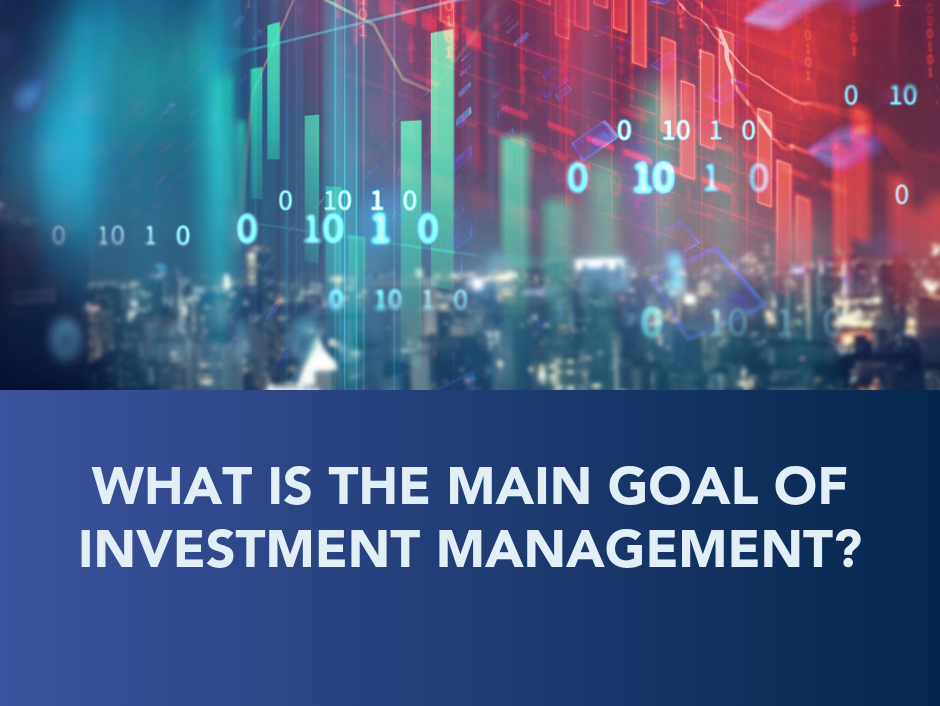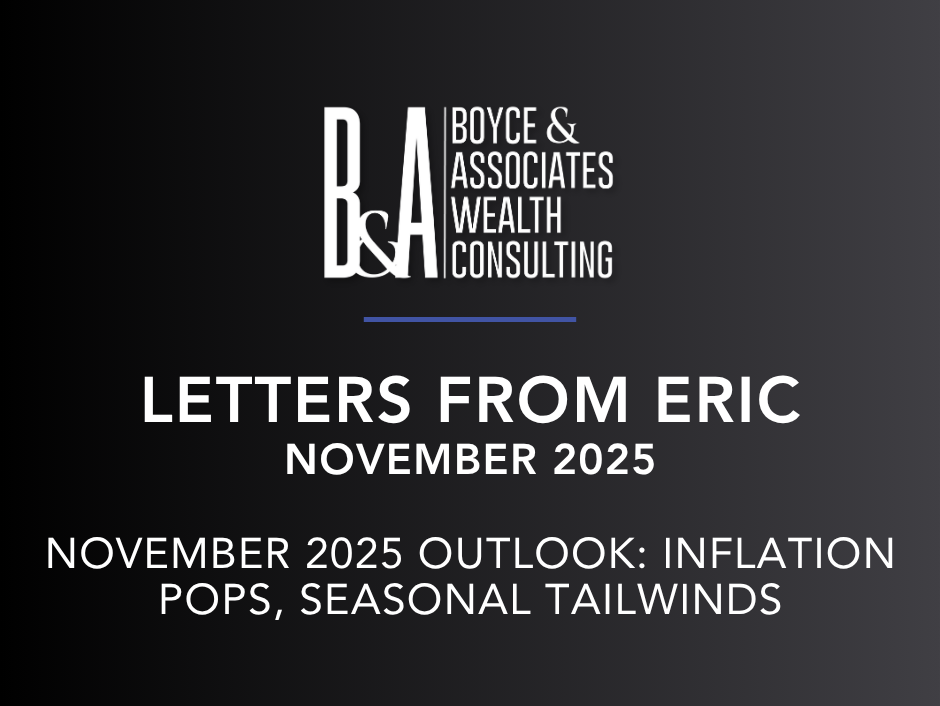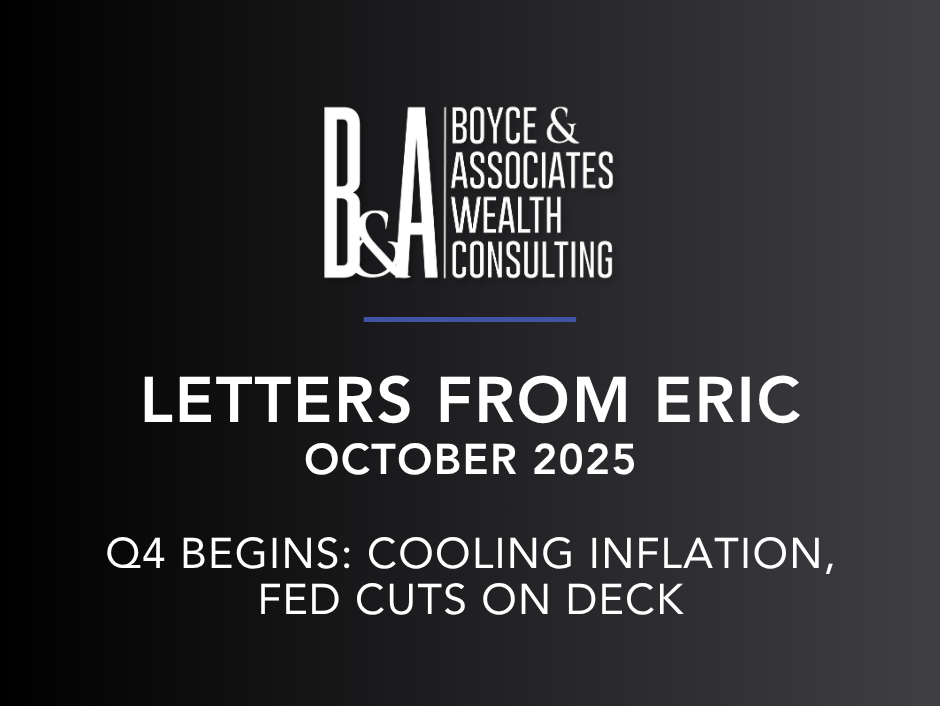By Boyce & Associates
•
September 25, 2025
Investment management is the professional oversight of assets with the objective of meeting specific financial goals. It includes portfolio construction, risk management, and alignment with an individual’s financial plan . While portfolio growth is important, the primary purpose of investment management is to ensure that capital is allocated intentionally to support long-term financial confidence, rather than focusing on short-term market gains. At Boyce & Associates Wealth Consulting , our philosophy centers on capital preservation and clear alignment with each client’s financial objectives. The sections below outline the definition, principles, and strategies that inform effective investment management, and clarify its primary goal. Investment Wealth Management Definition Investment wealth management is the process of managing a person’s financial assets that support their long-term goals. It involves making decisions about where to invest money, such as in stocks, bonds, or other assets, based on the client’s financial situation, risk tolerance, and objectives. At its core, investment wealth management combines portfolio oversight with a broader financial plan. This involves building and managing an investment strategy while also considering factors such as retirement timelines, tax implications, income needs, and estate planning. The goal is for every investment to support the client’s overall financial picture. Main Goal of Investment Management The goal of investment management is to grow and preserve wealth that supports an individual’s financial objectives. It is not about chasing the highest returns or reacting to market trends. Instead, it focuses on intentional growth within a disciplined and risk-managed strategy. At the center of this approach is principal protection , a priority for many individuals and families, especially retirees, business owners, and those with significant assets. Preserving the money you’ve already earned is often more important than trying to maximize gains. Effective investment management is part of creating a plan for the life you want . For example, someone nearing retirement may need to generate income from their investments while also ensuring their savings last. Their portfolio would likely include a mix of conservative investments, structured withdrawals, and tax-aware planning, all aimed at supporting a stable lifestyle rather than chasing aggressive market gains. Examples of Investment Goals Across Different Life Stages Early Career : Building savings for future goals, such as buying a home or starting a family. Mid-Life : Growing assets for retirement, funding children’s education, or investing in a business. Pre-Retirement : Reducing investment risk, increasing cash flow, and preparing for healthcare costs. Retirement : Generating reliable income, minimizing taxes, and preserving against outliving savings. Legacy Planning : Preserving wealth for future generations, supporting charitable giving, and managing estate transfer. Each of these goals requires a tailored investment approach that aligns with the client’s stage of life, priorities, and risk tolerance. Why Do People Go Into Investment Management Many people turn to investment managers when their financial situation becomes more complex or when they want help making informed, long-term decisions. Common reasons include: Lack of time or expertise Most individuals lack the time to research markets or manage risk independently. They want a professional to handle the details so they can focus on work, family, or personal priorities. Need for tax-efficient strategies As income and investments grow, so does the need to manage taxes. A thoughtful investment plan can help reduce tax impact and improve after-tax returns over time. Increased financial complexity Life events, such as retirement, divorce, inheritance, or selling a business, bring new financial challenges. Investment management provides structure and support during these transitions. Outgrowing DIY investing Many start by managing their own investments, but eventually seek expert guidance to preserve what they’ve built and ensure their portfolio aligns with long-term goals. Professional investment management brings clarity and coordination, especially when wealth, responsibilities, or financial risks increase. 4 Principles That Guide Successful Investment Management A successful investment management strategy is built on four core principles: Philosophy, Process, People, and Performance . These elements provide structure and consistency in managing wealth over time. 1. Philosophy Investment philosophy is the guiding belief behind how money is managed. It reflects the approach taken toward risk, returns, market behavior, and decision-making. A well-defined philosophy helps ensure that investment choices are made consistently, even during periods of market uncertainty. 2. Process Process refers to the step-by-step method used to design, implement, and monitor an investment strategy. This includes the selection of investments, the adjustment of portfolios over time, and the management of risks. A clear process supports disciplined decision-making and reduces the influence of emotion or short-term market noise. 3. People Investment management involves human judgment and relationships. The “people” principle highlights the importance of experienced professionals who understand the financial landscape and the client’s personal goals. Trust and effective communication are essential to building a long-term, effective advisory relationship. 4. Performance Performance measures how well an investment strategy meets its intended goals. It’s not just about returns, but about achieving outcomes in line with the client’s timeline, risk tolerance, and objectives. Long-term, goal-based performance is more meaningful than short-term market results. What Makes a Strategy Effective? Investment Goals and Examples An effective investment strategy should consider not only potential returns but also stability, flexibility, and alignment with personal objectives. Investment goals often vary based on life stage and responsibilities. Below are examples of common goals and the types of strategies that can help support them: Funding retirement by a certain age A long-term, diversified portfolio focused on stable growth and income can help ensure that assets are available to support lifestyle needs in retirement. Preserving wealth across generations A strategy that includes tax planning, risk management , and estate coordination can help ensure assets are transferred efficiently and remain preserved. Creating passive income streams Investments such as dividend-paying stocks, bonds, or real estate can be used to generate regular income without depleting the principal. Each of these goals requires a customized investment plan . There is no one-size-fits-all solution. A strategy is effective when it is realistic, carefully managed, and flexible enough to adjust to changing life circumstances. Investment Strategies for Wealth Management Below are four core strategies commonly employed in well-structured portfolios. Each strategy plays a distinct role in managing risk, enhancing returns, and keeping investments aligned with personal objectives. Asset allocation Asset allocation is the process of dividing investments among various asset categories, including stocks, bonds, and cash. The goal is to balance risk and return based on the investor’s timeline, financial goals, and level of risk tolerance. For example, a younger investor might hold more stocks for growth, while someone near retirement might shift toward bonds for stability and income. Diversification Diversification refers to spreading investments across a range of assets, industries, and regions. A stock that is spread out is better prepared to handle market fluctuations while still pursuing long-term growth. AA/Diversification Disclosure Neither Asset Allocation nor Diversification guarantees a profit or protects against a loss in a declining market. They are methods used to help manage investment risk. Tax-loss harvesting Tax-loss harvesting involves selling stocks to offset tax liabilities resulting from gains from other investments, thereby balancing out the value of these gains. This strategy helps reduce capital gains taxes and can improve after-tax returns. The proceeds from the sale are often reinvested, making similar, but not identical, purchases to keep the portfolio’s overall strategy. Rebalancing Rebalancing means adjusting the portfolio to bring it back in line with the original investment plan. Over time, some investments may grow faster than others, shifting the balance of the portfolio. Rebalancing Disclosure Rebalancing/Reallocating can entail transaction costs and tax consequences that should be considered when determining a rebalancing/reallocation strategy. Frequently Asked Questions About Investment Management What is the 10 5 3 rule of investment? The 10-5-3 rule is a basic guideline that reflects average long-term returns for different types of investments: 10% return from stocks 5% return from bonds 3% return from cash or savings These are not guarantees but estimates based on historical performance. The rule helps set realistic expectations and shows how different investment types carry different levels of risk and reward. It's especially useful when planning long-term goals, such as retirement. What type of investment is best for beginners? For most beginners, the best investments are those that are easy to understand, low-cost, and widely diversified. Common starting points include: Index funds: These track the overall market and are simple, low-cost options. Target-date funds: These automatically adjust the investment mix based on your expected retirement year. Robo-advisors: These offer automated portfolio management with little setup. MF/ETF Disclosure: Mutual Funds and Exchange Traded Funds (ETF’s) are sold by prospectus. Please consider the investment objectives, risks, charges, and expenses carefully before investing. The prospectus, which contains this and other information about the investment company, can be obtained from the Fund Company or your financial professional. Be sure to read the prospectus carefully before deciding whether to invest. An investment in the Fund involves risk, including possible loss of principal. Your goals, risk, and other factors will help you make the best decision on how involved you want to be. Starting with a simple, balanced approach is often the most effective way to proceed. What is the safest investment with the highest returns? No investment is completely risk-free, but some are considered safer than others. Typically, U.S. Treasury bonds, high-yield savings accounts, and certificates of deposit (CDs) are among the safest options. However, safety often comes at the expense of lower returns. If you're seeking higher returns with limited risk, a diversified portfolio that combines stocks and bonds may offer a balanced solution. It’s essential to find the right balance based on your timeline and comfort level with risk, rather than prioritizing the highest return alone. Tax/Legal Disclosure Boyce & Associates Wealth Consulting does not offer legal or tax advice. Please consult a professional regarding your individual circumstances. Blog Disclosure This blog contains general information that may not be suitable for everyone. The information contained herein should not be construed as personalized investment advice. There is no guarantee that the views and opinions expressed in this blog will come to pass. Investing in the stock market involves gains and losses and may not be suitable for all investors. Information presented herein is subject to change without notice and should not be considered as a solicitation to buy or sell any security. (FirmName) does not offer legal or tax advice. Please consult the appropriate professional regarding your individual circumstance. Past performance is no guarantee of future results.










